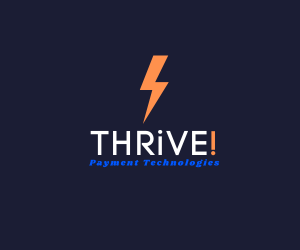What the California Consumer Privacy Act means for your business website
The CCPA requires businesses to disclose when cookies are used on their website
The California Consumer Privacy Act (CCPA) requires any business in California or that does business with California residents to disclose privacy information to residents on their website and/or mobile website or app. If your website uses cookies, you need to disclose it. If you collect information about your website visitors, you need to disclose it. You need to let a website visitor know that a cookie on your website is tracking information about their visit to the site. Afterwards, someone who visited your sight might receive an advertisement for the website you visited. Or you might be offered a deal for something similar from another online advertiser with similar services or products.
What is a cookie?
What is a cookie? Google defines a cookie as "Cookies are small pieces of text sent to your browser by a website you visit. They help that website remember information about your visit, which can both make it easier to visit the site again and make the site more useful to you."
What do cookies do?
- Session management: Cookies let a website identify a user and remember login information and personal preferences of a visitor like what type of news you prefer.
- Personalized Experience: Personalized advertising is another important way cookies function to enhance your web experience. A website visitor may view specific items or parts of a site. Cookies use this data to build targeted ads based on your behavior online. They’re also used for language preferences as well.
- Tracking: Shopping sites use cookies to track products a visitor previously looked at, they allow a site to offer similar products, and keep items in your checkout carts while you shop for other items on the website. Additionally, the cookie may remember how often you looked at a particular product and how long you stayed on the page - analytics.
The CCPA is a statutory law meaning failing to comply is a legitimate cause of action to file a civil lawsuit in California. According to the California attorney general, the law gives certain important rights to California based consumers including:
- The right to know about the personal information a business collects about them and how it is used and shared;
- The right to delete personal information collected from them (with some exceptions);
- The right to opt-out of the sale or sharing of their personal information; and
- The right to non-discrimination for exercising their CCPA rights.
California’s CCPA does not require businesses to gain opt-in consent for cookies, but it requires businesses to disclose that cookies are used, and data is collected by cookies and their purposes. If cookies are used for targeted advertising, it could be considered a “sale” under CCPA and it is advised to receive consent, not just give disclosure. To play it safe, many companies that do business in California ask website visitors to opt-in to your website's cookies rather than just disclose cookies on their websites.
How do you know if cookies are used on your website?
When using Google Chrome, open an Incognito window and type in your website's address.
- Click the lock icon to the left of your browser URL box.
- Click on cookies.
- The active cookies on your website will display. For more information, click on the little triangles in front of it.
What other states have similar laws?
According to NSCL, "Five states—California, Colorado, Connecticut, Utah, and Virginia—have enacted comprehensive consumer data privacy laws. The laws have several provisions in common, such as the right to access and delete personal information and to opt-out of the sale of personal information, among others."
What you need to do:
1. Create a terms and conditions agreement (aka terms of service or terms of use) for your website or app to better protect your business.
2. Use our cookie consent tool to create a policy for your cookies, build a cookie consent banner, and deliver seamless cookie consent management while complying with global privacy laws in 25+ regions.
3. Create a privacy policy for your website, app, e-commerce store, SaaS, small business, or any other need. Comply with additional laws including GDPR, CCPA, PIPEDA, CalOPPA, and more!
4. Create a disclosure policy — from a medical or affiliate disclaimer to a basic blog disclaimer — our tool and legal policy generator has you covered.
Have more questions or need help?
Reach out here.
















